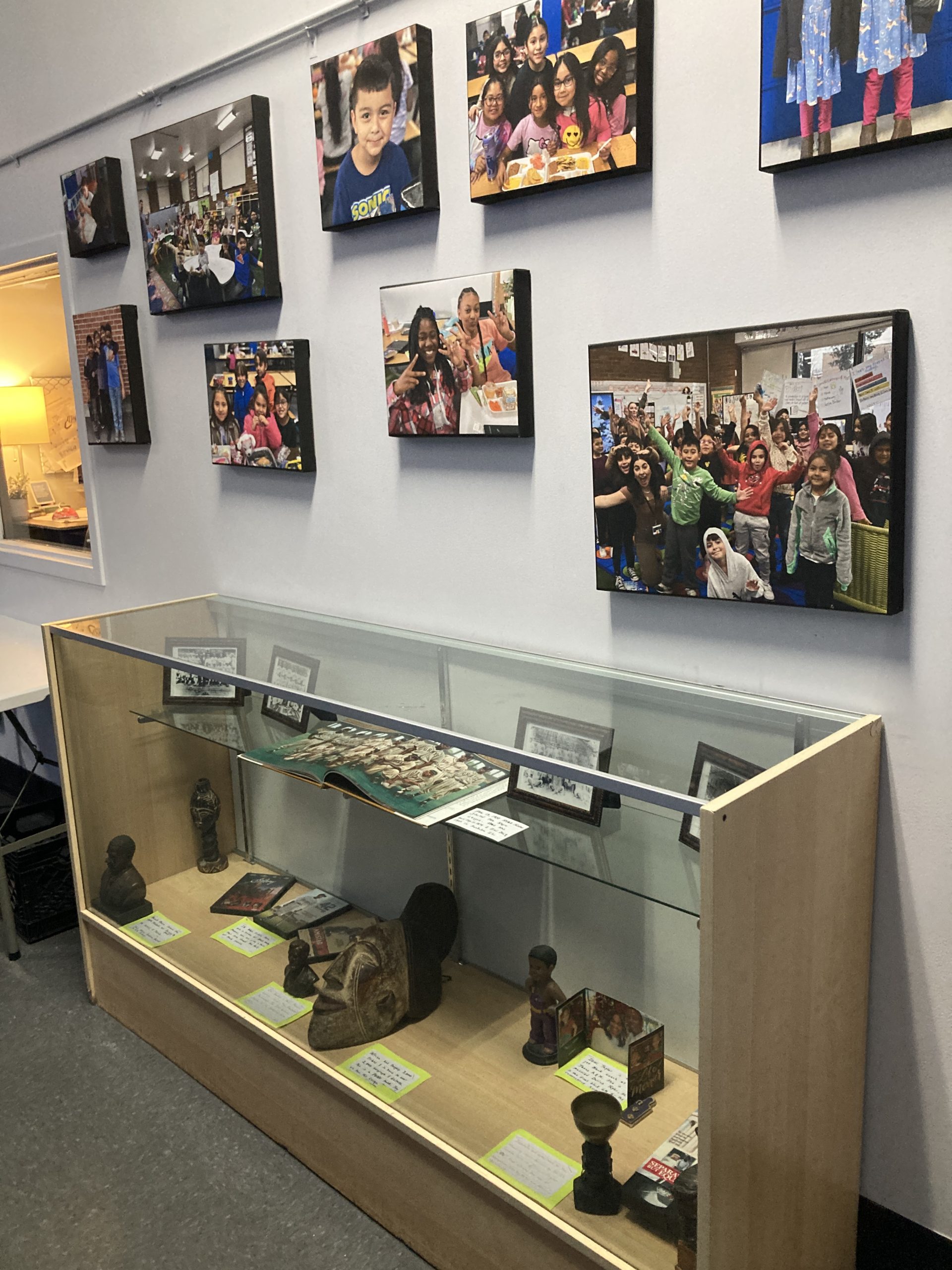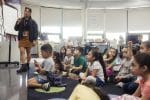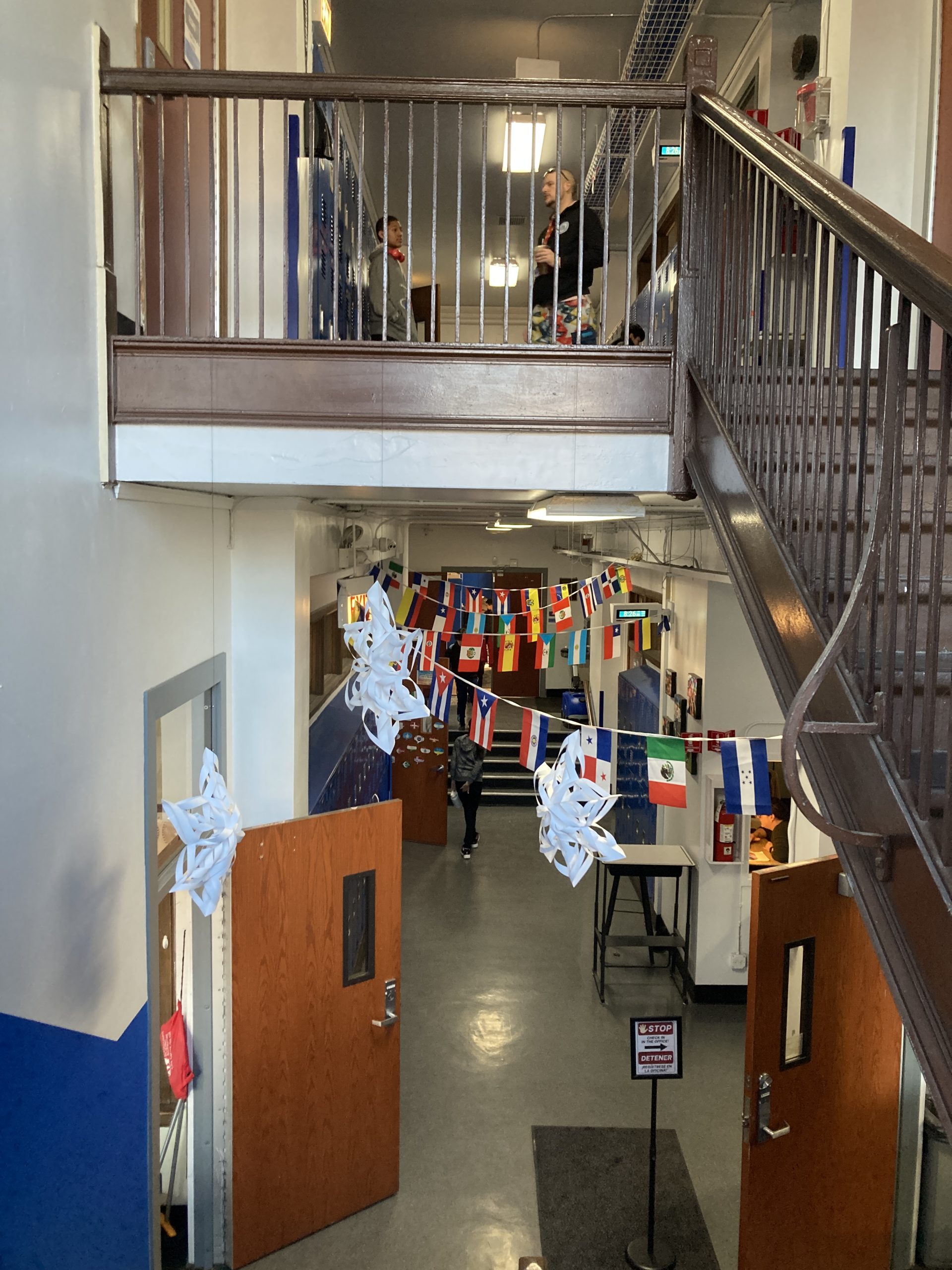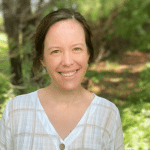Welcome to West Belden
CompetencyWorks Blog
It’s an unexpectedly warm and sunny day in late January. Inside the halls of the Chicago International Charter School (CICS) West Belden, a K-8 charter school managed by Distinctive Schools in the Belmont-Cragin neighborhood of Chicago, the atmosphere matches the weather. It’s cheerful and bustling. Families have come to the school for conferences, and the halls are packed – families chatting and greeting each other, students proudly leading their families from table to table in the gym to meet with their teachers and discuss their work, younger siblings giggling and looking shy, gazing around admiringly at their older siblings’ lockers. The halls are lined with colorful pictures of the life of the school: students on field trips, laughing at recess, presenting projects in class, playing sports. Flags from around the world criss-cross the hallways, fluttering in the breeze from open windows. College pennants dot the hallways, mixed together with a display on Black History Month and a bulletin board with the current Family of the Month and a poster about upcoming Valentine’s Day celebrations.

Amidst it all, there is a long row of tables from community partners, each covered with informational brochures in multiple languages, often with a bowl of candy or some free giveaway items to entice people in. The community partners have been invited to come today to share their resources with the families at the school, as part of the ongoing work that the school is doing to serve as a community hub. The tables are widely varied – one is an athletic program that offers high-quality sports classes and coaching; one is a nonprofit that helps renovate vintage homes; one is a community association that provides legal aid, mental health services, and employment services to newly arrived immigrants and refugees. They all are based nearby, and have built connections to CICS West Belden through the work of their Community Schools Coordinator, Jesus Meraz.
CICS West Belden has always been a school that prides itself on having a strong community, both internally and externally. Staff morale and retention is high; teachers report feeling cared about and having strong relationships. Additionally, the school places a strong priority on knowing students and their families, and makes it a priority to involve families in decision-making and agenda-setting for the school. As Jesus describes his work, “I connect with our families, and they will express their needs and wants for the school. And then what I do is I go out in the community and look for those resources.” This family-driven approach helps ensure that the school is able to meet students’ real needs, and continuously evolve their support as the needs of the community evolve. This is one way in which CICS West Belden is marrying the concepts of personalized learning and community-centered learning.

The Evolution of Community-Centered Learning at CICS West Belden
The role of the community schools coordinator at CICS West Belden is only a couple years old. Although CICS West Belden has always prided itself on close relationships with students and their families, the COVID-19 pandemic made them aware of how many unfilled needs students were still experiencing. When the school was forced to shift to remote learning, they sent home devices, but many students were unable to participate because they didn’t have wifi at home. The realization that many students also needed hotspots caused the school to recognize that there were other needs they weren’t aware of. As Assistant Principal Kathy McInerney explained, “What we really learned during COVID was, there’s a lot that families need and don’t necessarily ask for on their own. So that was the starting point of, like, we need to set up systems for this, as opposed to just figuring it out as we go along.” This realization sparked the creation of the community schools coordinator position.
Ideas for new partnerships to help fulfill needs come from many different members of the CICS West Belden community. Parents and families can reach out to Jesus directly, and the school does a twice-annual needs assessment. Students fill out a survey each year giving feedback on things the school is doing, and teachers can submit a form if they notice a need among their students. Part of the work that Jesus does is sifting through all of this data, identifying common needs and wants, and identifying ways to address them. Sometimes families and community members approach the school to share ideas or resources, which the school then can distribute on their behalf. For example, Angela Serrano, a middle school math teacher, described receiving an email from a parent about a science camp that her daughter had attended and loved. “It was for girls in STEM. As a female math teacher, it’s really cool for me to get my girls to really go further in STEM. So that was a really cool opportunity that I was able to push out.”
Building a Foundation for Personalized Learning

Ultimately, the goal of this community integration into the work of the school is to help support students as whole people, so they can learn and grow and develop to the best of their abilities. As Kristin Eng, the principal of West Belden, describes it, “Personalized learning is subjective, right? For us, we mean that we’re meeting the kids’ needs throughout their instructional day.”
CICS West Belden has long used a personalized approach to learning. Over the years, the school has undergone multiple iterations in how to create personalized learning experiences for students, ranging from multigrade classrooms to various online personalized learning programs. (Read this excellent case study about some of its earliest transformations if you want to learn more!) However, the COVID-19 pandemic really impacted their practice and led the school to a point where they are reconsidering how they want to approach this work and build on their strong foundation.
West Belden has been using the LEAP Learning Framework to help guide them, and is currently focused on what that framework refers to as “Learner Focused (Learners are empowered to holistically understand their needs, strengths, and interests).” As Principal Eng explained, “We really want to build strong relationships with students individually first.…That’s the foundation of culture at a school level. If the staff didn’t feel safe, if the kids didn’t feel safe, if families didn’t feel involved, then how can we move academic achievement?” This foundation – of knowing students and their needs, strengths, and interests through deep connection to their community outside of school – paves the way for future work she hopes to deepen in the years to come, which will focus more on personalized pathways and the other elements of the LEAP Learning Framework.

Assistant principal McInerney, agrees. “Just think of yourself. If you’re not feeling well, or if you’re stressed about something, you’re not going to do your best, you’re not able to learn your best. It’s the same with kids. So when we are not able to help support those primary needs of kids, they’re not able to learn their best. I think the other piece of the community schools system is in relationship building. Kids learn best from people that they trust and they know care about them. Being a community school provides opportunities for our staff to form deeper relationships and stronger relationships with students, and from there, teachers can really push their students to do more. Teachers believe in students more. Teachers get to know their students and what they are interested in and care about, and can integrate that into their learning in their classroom. I think you can’t just teach a kid academics…. You have to think about who the whole student is if you want them to be successful. And I think that’s what being a community school is doing: it’s helping us understand who our kids and who our families are on a deeper level.”
This is the first post in a series of three posts about CICS West Belden. In post 2, we focus more on their work as a community school. In post 3, we focus more on their personalized and student-centered learning approach. We hope you’ll stick around to learn more!
Learn More
- Finding a Way Forward Together: Community Schools and CBE
- CICS West Belden: For the Community
- Learners at the Center: Competency-Based Education at CICS West Belden
 Kelly Organ joined the Aurora Institute as Research Manager in August 2024. She previously served as Director of Research Partnerships at a national nonprofit focused on youth well-being and social-emotional learning. Her career spans roles in service-learning, social entrepreneurship, action civics, and youth leadership programs, with a focus on developing culturally responsive and adaptable practices that support diverse learners.
Kelly Organ joined the Aurora Institute as Research Manager in August 2024. She previously served as Director of Research Partnerships at a national nonprofit focused on youth well-being and social-emotional learning. Her career spans roles in service-learning, social entrepreneurship, action civics, and youth leadership programs, with a focus on developing culturally responsive and adaptable practices that support diverse learners.